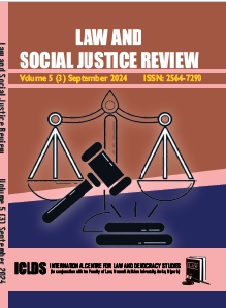ARTIFICIAL INTELLIGENCE AND CORPORATE CRIMINALITY: EMERGING CHALLENGES IN LIABILITY AND ACCOUNTABILITY
Keywords:
Artificial Intelligence, Corporate Criminal Liability, Organisational Fault, Algorithmic Collusion, Cybercrime, Corporate GovernanceAbstract
Traditional liability doctrines-vicarious liability, the identification doctrine, and organisational fault-struggle to accommodate AI-driven decisions, particularly where autonomous systems act without direct human involvement. This article examines the emerging challenges of corporate criminal liability in the age of artificial intelligence (AI). It explored how AI is deployed as both a tool and potential perpetrator of corporate misconduct, ranging from algorithmic trading and collusion to money laundering and cybercrime. The article adopted a doctrinal methodology drawing on primary and secondary sources of Law in Nigerian, as well as other jurisdictions. The article found that while AI itself cannot bear criminal responsibility, corporations must remain accountable for the risks created by its deployment. The article recommends reforms, including stricter compliance obligations, hybrid liability models, and harmonisation of international regulatory standards. In addition, regulatory frameworks must increasingly emphasise the role of corporate governance structures, compliance programmes, whistleblowing mechanisms, and independent algorithmic audits as essential safeguards against the risks posed by AI deployment and misuse. The paper concludes that effective governance of AI within corporate contexts will depend on striking an appropriate balance between fostering innovation and ensuring accountability.

